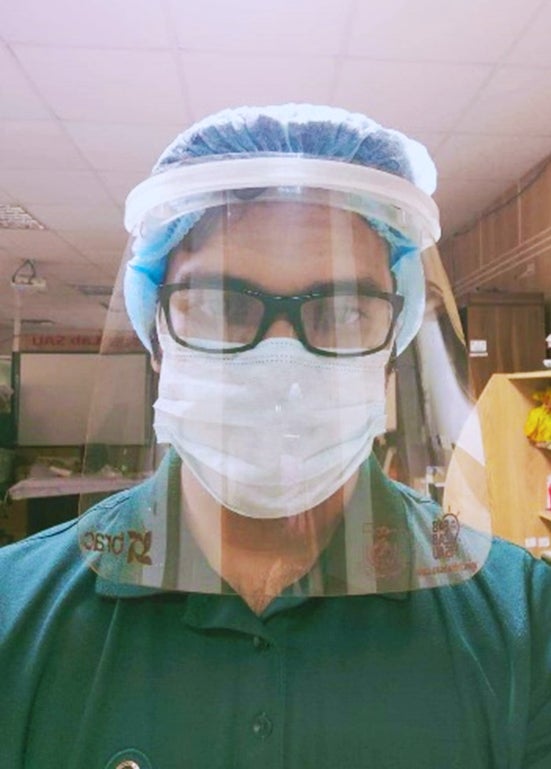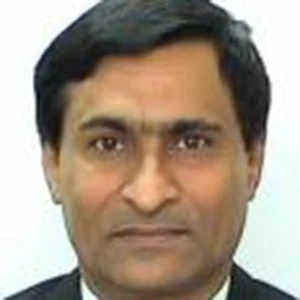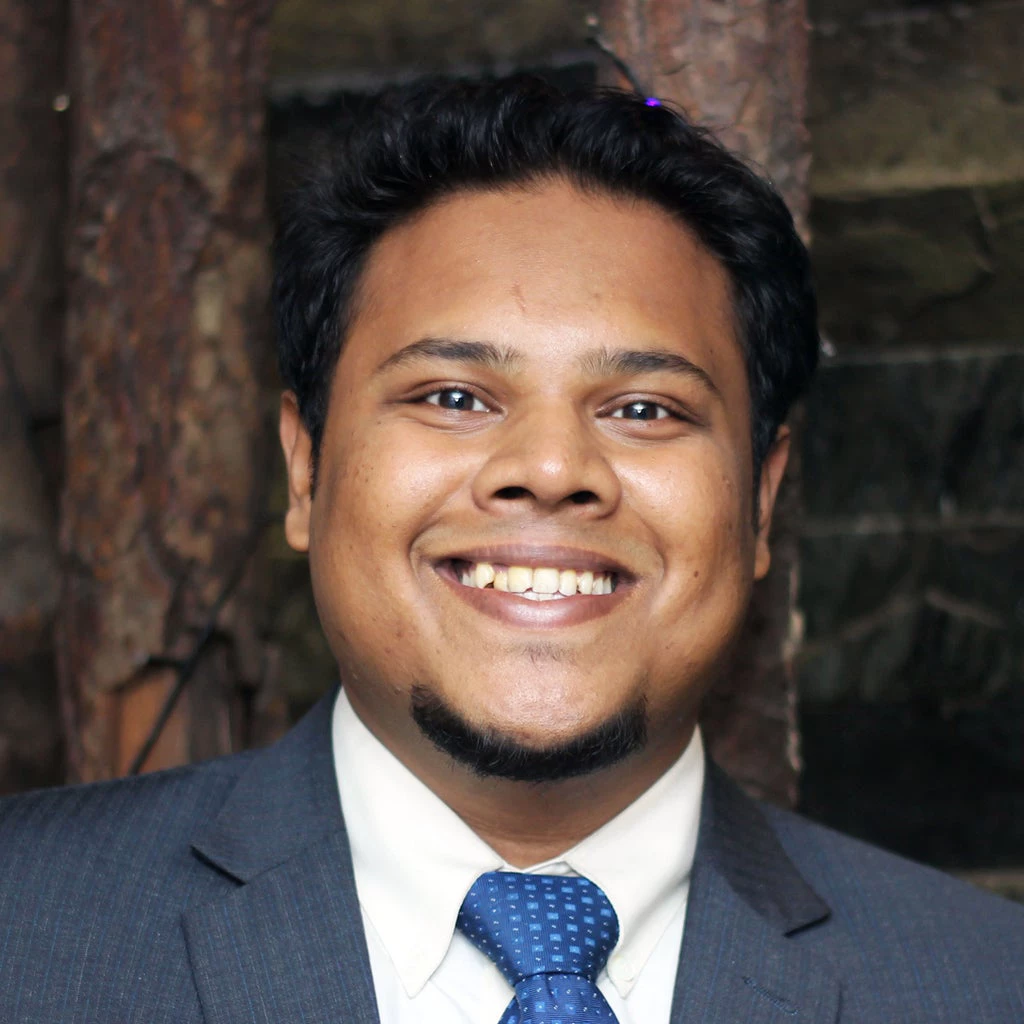 Au Bangladesh, des travailleurs exposés au coronavirus portent des visières mises au point par S. M. Anamul Arefin. Photo : Banque mondiale.
Au Bangladesh, des travailleurs exposés au coronavirus portent des visières mises au point par S. M. Anamul Arefin. Photo : Banque mondiale.
In these unprecedented times, SM Anamul Arefin, a graduate in the Sher-e-Bangla Agricultural University (SBAU), became an unlikely inventor, turning to his 3D printer to develop face shields that protect doctors and nurses as they work with patients infected with the coronavirus (COVID-19).
With only a working knowledge of how to operate the 3D device, Arefin first produced the shields for his friends and community. Then BRAC, one of the world’s biggest non-governmental organizations, placed an order for 1,000 shields to protect their frontline health workers. Since then, BRAC has placed another order for 4,000 shields.
“BRAC has a network of 50,000 health care workers on the ground, so we were looking for high-quality protective equipment,” said BRAC Social Innovation Lab Program Coordinator, Rakib Ovi. “ There were no verified vendors around. Then we came across the Fab Lab. We picked the idea up from other countries who were 3D printing these. We reached out to Fab Lab, and they were already enthusiastic about it. We were happy to identify a local source to meet our demand.”
With a computer numerical machine that activates a cutting device, the Lab can produce 200 shields a day. With 3D printers, the lab team can yield 30 shields daily.
This approach has helped deliver face shields that are cheaper and of better quality than others used in Bangladesh.
“These face shields are simple and effective. They are affordable. As doctors are vulnerable to infection, these have been very helpful to us,” said Sharwarthy Medical College, Pediatric Professor Dr. Al Amin. “We wash the shield after each patient. Despite the washing and reusing, the shields have not deteriorated. They are well made and cost-effective.”
At the forefront of innovation
Fab Labs, a global initiative brought to Bangladesh through the World Bank’s Higher Education Quality Enhancement Project (HEQEP), aim to improve learning and research in the country’s higher education sector.
Fab Labs increase opportunities for prototyping and joint research between universities and industries. Their multi-disciplinary teaching, learning, and research platforms have proved valuable to local industries specializing in garments, furniture, agriculture, and leather, through digital modeling and design tools to help them move up the value chain.
The project has promoted academic innovation in universities through a competitive funding mechanism known as the Academic Innovation Fund (AIF), and also funded the establishment of Fab Labs at eight universities to engage more with industry.

Arefin Had a Dream
As a researcher at SBAU, Arefin worked with Professor Suleman to develop urban agricultural tools through manual fabrication. The Ministry of Environment and Forest held a fair where their innovations won first place.
When the World Bank approached universities to develop Fab Labs, Arefin made a winning proposal that helps make better tools using digital technology. He participated in a training in India and graduated as a “Fab Lab Guru” or technical expert.
“I always wanted to be a researcher,” said Arefin. “I dreamed of inventing solutions to problems. If we go for government service jobs, how will the country progress? We need different skills. We need people who do research and create new solutions to old problems. That’s innovation. I believed I had to do something different. That is what excites me.”
Arefin is now collecting accessories to develop PCR machines to amplify segments of DNA for coronavirus testing. He has completed a design for a sensor-based disinfection fogging system and is in close contact with technical experts in the United Kingdom to work on a ventilator and other equipment for the pandemic.
Fab Labs, a global initiative brought to Bangladesh through the World Bank’s Higher Education Quality Enhancement Project (HEQEP), aim to improve learning and research

Arefin laments the lack of investment in research at universities. He points out that both the private sector and the government need to play a role in encouraging research and development, and that more funding is necessary to make space for new ideas, growth, and progress.
Arefin was always curious about technology: as a child, he broke open the TV set to see how it worked. Later, his family did not allow him to go near the computer, fearing he would do the same!
Now, he can see that his own ingenuity has helped usher in a new era of innovation to tackle COVID-19.




Join the Conversation